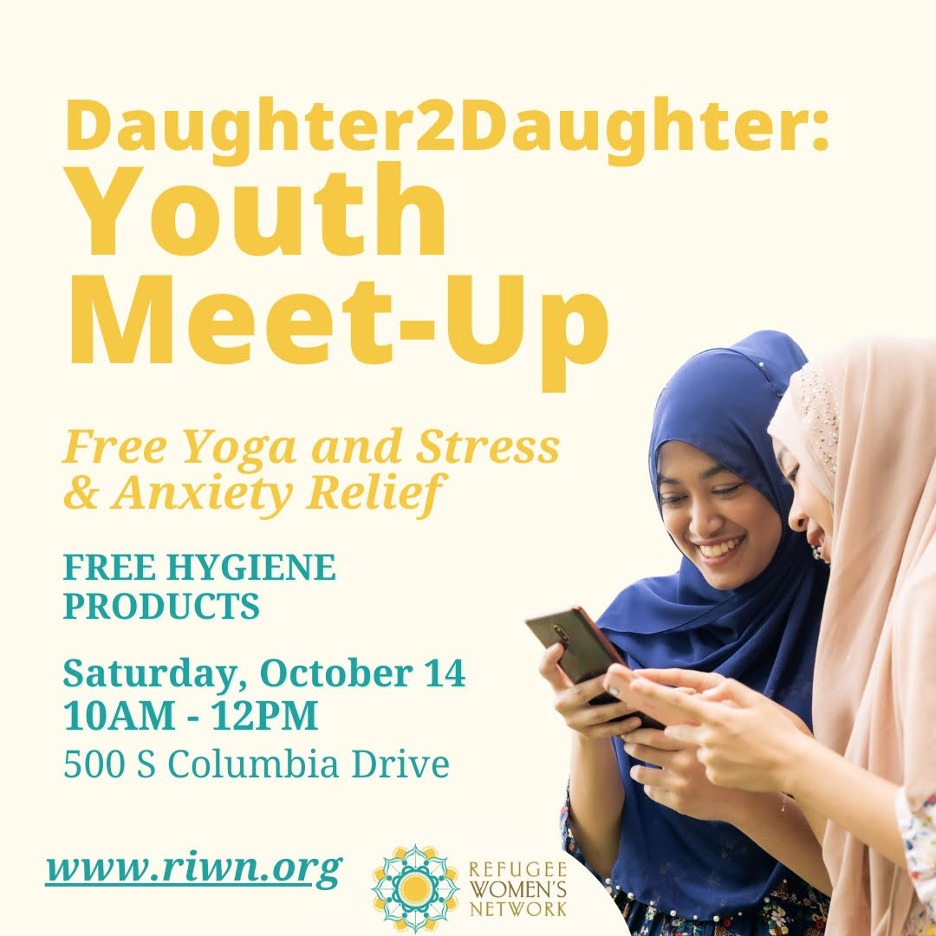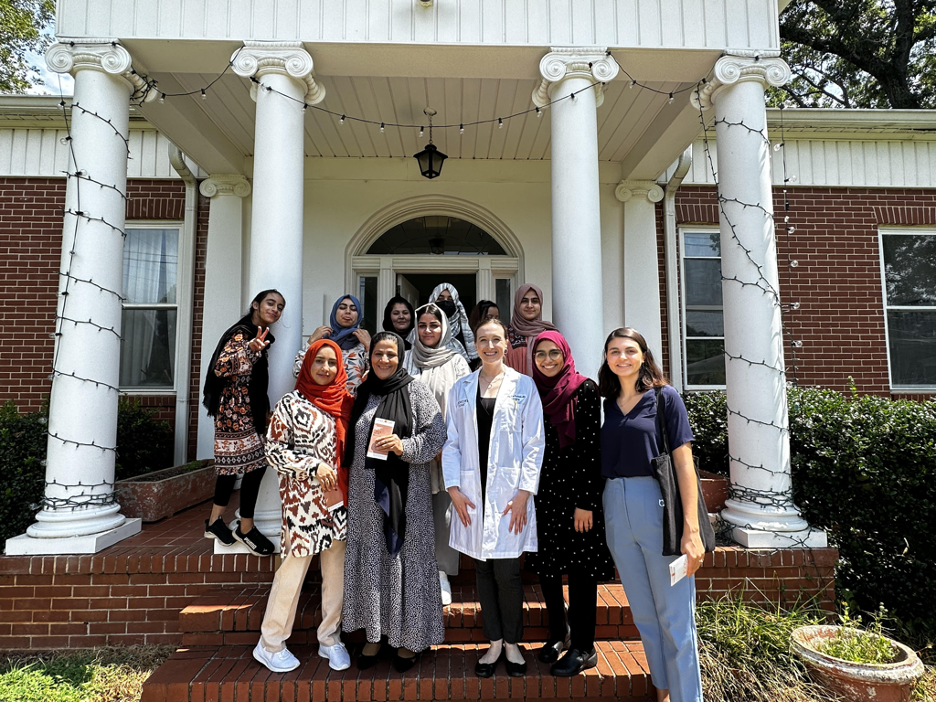Nearly 90,000 of the Afghans who were displaced by the Taliban takeover of Kabul reached the United States through Operation Allies Welcome (OAW) Response. OAW was an initiative that coordinated efforts across the federal government and its many partners. As resettled Afghans began arriving in 2021–during the COVID-19 pandemic–resettlement agencies collaborated with federal agencies, healthcare systems, public health professionals, social service providers, and community-based organizations to provide assistance.
Recently resettled Afghans are adjusting to their new lives, contributing to their communities, and seeking opportunities for employment, education, and other forms of meaningful engagement. At the same time, they are facing challenges related to the trauma of sudden displacement and learning to navigate new systems, from health care to education to social services, in English.
Afghan youth–children, adolescents, and young adults under 25 years of age–experience similar challenges as older adults during the resettlement process. However, young people have specific needs and strengths that call for a tailored approach to programming. Youth-centered programs have the potential to support young Afghans in their personal growth and encourage their successful integration into new communities, schools, and workplaces.
Challenges and Opportunities for Resettled Afghan Youth
Resettled Afghan youth often face unique challenges as they adapt to life in the United States. Their experiences of conflict and displacement have very likely disrupted their relationships, schooling, and many other aspects of their lives, and these experiences may produce short- and long-term effects on their social, emotional, and intellectual development. As resettled Afghan youth cope with their changing circumstances, they may struggle with a complex array of feelings, including anxiety, irritability, distractedness, numbness, indifference, low self-worth, or low self-control. It is important for health professionals, educators, and others who work with youth to recognize how their experiences and feelings can interact with health, development, and behavior. At the same time, it is essential to remember that with appropriate support, resettled Afghan youth can have their resilience fostered, strengthen their capacity for recovery, and thrive.
Organizations looking to develop supportive and culturally concordant programming for resettled Afghan youth should consider the following strategies:
- Take a holistic approach to well-being, encouraging youth to thrive physically, mentally, emotionally, and socially. Acknowledge the impact of trauma and stressors on Afghan youth and provide resources for mental health support.
- Educate program staff about recognizing symptoms associated with trauma in youth. Build early intervention strategies and support systems for those who may be experiencing trauma-related challenges. When communicating with Afghan youth, establish shared, culture- and age-relevant terms to name and describe mental health concerns.
- Create healing spaces that promote a sense of control, self-worth, belonging, healthy relationships, and intellectual engagement.
- Cultivate environments where Afghan youth feel safe, valued, and understood.
- Engage youth through community gatherings that include food, arts, or recreation. Consider integrating activities like cooking, visual arts, dance, drama, or sports/exercise into community programs to encourage fun, relaxation, self-expression, and resilience.
- Ensure that services are culturally relevant and sensitive to the unique experiences of Afghan youth. This means understanding the cultural backgrounds and traditions of Afghan youth and the challenges they face in adapting to new circumstances.
- Encourage self-empowerment by providing Afghan youth with opportunities to co-lead and take responsibility for youth programs. Engage Afghan youth in the planning, implementation, and evaluation of programs to enhance their sense of agency and belonging.
- Collaborate with educational organizations to offer targeted support for Afghan youth and their families, especially in areas such as navigating the school system, English language support, academic tutoring, and post-education planning. Be aware that newcomer youth may not be placed in an age-aligned grade level (e.g., an 18-year-old may be placed as a freshman), which affects their potential social networks and other aspects of their lives.
- Facilitate parent workshops and home visits, if welcomed by families, to build connections between families and organizations working with Afghan youth. Acknowledge that while parents want their children to thrive, they may have difficulty fully engaging with organizations (including schools) immediately after resettlement due to language barriers, work schedules, or lack of familiarity with the system. Proceed patiently, inviting, role modeling and empowering parents to advocate for their children's needs.
- Provide appropriate resources and guidance to Afghan youth interested in higher education or vocational training. This could take the form of one-on-one coaching, help with career exploration, or guidance on application processes.
By incorporating these recommendations, organizations can contribute to the well-being of Afghan youth in their new communities.
Tailored Programs for Afghan Youth in Georgia
Refugee Women’s Network (RWN) has been offering a variety of linguistically and culturally responsive programs for newly resettled Afghan youth in DeKalb County, Georgia.
Daughters x Daughters is a series of gatherings for Afghan girls modeled on RWN’s successful Mothers x Mothers program. During these gatherings, girls meet to connect with each other and talk about health topics in conversations facilitated by Dari- and Pasho-speaking Community Health Promoters. Afghan girls who participate in Daughters x Daughters pick topics for discussion and RWN invites content experts to give presentations to the group. The girls have opportunities to propose ideas and give feedback in person and through WhatsApp. Selected topics have ranged from women’s health to hair and skin care to mental health.
RWN also hosts three youth groups for young Afghans of different ages:
- A group for young adults (18-24) to reach educational and career goals. Participants in this group get help with their English language skills, as well as support with college and financial aid applications. Young adults looking to work get help establishing connections with local employers so they can begin to build a work resume in the US.
- A group for teenagers (13-17) to succeed in school. Participants in this group get help with their English language skills and school subjects like math.
- A group for children (5-12) focused on outdoor activities like hiking, kayaking, and fishing.
Marhaba Alokozai, RWN’s Youth Mentoring Development Coordinator, reflects on her work as follows: “When we’re talking with [Afghan youth] about their educational goals, they worry a lot about how to do the English classes, how to get documentation to the college, and which is the best one… We want them to have this information, [and also] to know themselves… that I am under stress, or this is extra pressure I don’t want to keep at this time.” She adds, “At this time they’re worrying about everything. Sometimes they think it’s not possible, but actually there is a lot of opportunity. Everything is possible, but it needs time.”
Funding a Peer-Led Youth Program in Washington State
Washington State’s Office of Refugee and Immigrant Assistance (ORIA), housed within the Department of Social and Health Services, receives federal funding from the federal Office of Refugee Resettlement (ORR) and contracts that funding out to statewide community partners. Through its partnerships, ORIA works to ensure that refugees and immigrants in Washington have access to high-quality, culturally and linguistically responsive services.
In 2023, ORIA provided special funding for its partner Afghan Health Initiative (AHI) to run an Afghan Youth Empowerment Program serving 14- to 21-year-olds through a combination of wellness activities and academic support. AHI’s youth program, which has served about 50 young Afghans so far, is led by a council of 6 youth peers who develop workshop ideas and recommendations to ensure that programming stays responsive to participants’ needs. Topics covered in AHI’s youth workshops include self-care, managing emotions, decision-making, the importance of high school, preparing for college, parenting, bullying, substance abuse, and personal hygiene. In addition to the workshops, the program offers monthly field trips to places of interest in Washington.
ORIA funded this program by nimbly blending multiple funding streams earmarked for youth health and wellbeing, as well as youth integration and education. Afghan youth who participate in AHI’s program as leaders on the council are paid to recognize their work and unique experience. The program is offered in person as well as online to help address transportation barriers that local Afghan youth face.
Whitney Eich, ORIA’s Program Manager focusing on programs for children and youth, says, “I think having Afghan Health Initiative as one of our partners has been very successful. Because they are an Afghan-led organization, I think that makes a real difference…you know that it's going to be culturally responsive.” She adds, “It’s really great that we’re able to pay for that expertise the young Afghan youth are bringing. That’s something we worked really hard to figure out how we could make happen… They’re paid for every event they help to design or workshop they help to design. I think that's a great model to honor the expertise they bring.”


